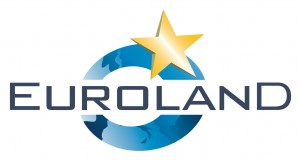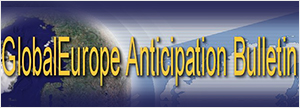In cooperation with Europe 2020, the European Institute hosted a seminar entitled, “Paths to a Future Common EU Policy Toward North America.” The discussion consisted of two morning sessions, in which Global Europe 2020 presented their findings on transatlantic divergence before an international audience. {{Frank Biancheri}}, Director, Europe 2020, indicated that shifting interests, the success of European integration and the emergence of the post Cold-War generation have led transatlantic relations to a critical impasse. He also suggested a number of reforms for improved transatlantic ties, many of which led to strong reactions and spirited debate from American panelists. Discussants included {{Tracy McKibben}}, Director, European and Eurasian Affairs, National Security Council; {{Shaun Donnelly}}, Principal Deputy Assistant Secretary, Bureau of Economic and Business Affairs, U.S. Department of State; and {{John Van Oudenaren}}, Chief, European Division, Library of Congress.
<img188|center>
{{His Excellency Carlos Westendorp y Cabeza}}, Ambassador of Spain to the United States, despite earlier comments regarding the widening transatlantic rift, was optimistic about the future of U.S.-EU relations, adding that the two partners still share common interests and face similar challenges. He also emphasized the need for greater transnational cooperation, as global problems require global solutions. Stemming from these points, {{Harald Greib}}, Vice President, Europe 2020, identified several challenges of mutual importance, such as the Mid-East peace process and economic development within the third world, in which the U.S. and the EU could act as partners. However, Greib also raised concerns over the future of regional integration, specifically the lack of a clearly defined ‘Neighborhood Policy,’ and the Union’s ongoing transformation towards a unified political entity. Additional remarks were made by {{Karen Volker}}, Deputy Director, Office of European and Regional Affairs, US Department of State; {{Philippe Coessens}}, Counselor, Head of Political Section, Delegation of the European Commission; and {{Dr. Daniel Hamilton}}, Director, Center for Transatlantic Relations, Paul H. Nitze School of Advanced International Studies.
<img189|center>
{{His Excellency Jean-David Levitte}}, Ambassador of France to the United States, delivered keynote remarks on the shared challenges and opportunities facing the United States and the European Union. Although Ambassador Levitte acknowledges the widening rift between transatlantic partners, he maintains that the US-EU relationship will remain of critical importance to the international system, particularly within the Middle East and throughout the developing world.


 LEAP2040 Toutes les informations et archives Europe2040
LEAP2040 Toutes les informations et archives Europe2040


